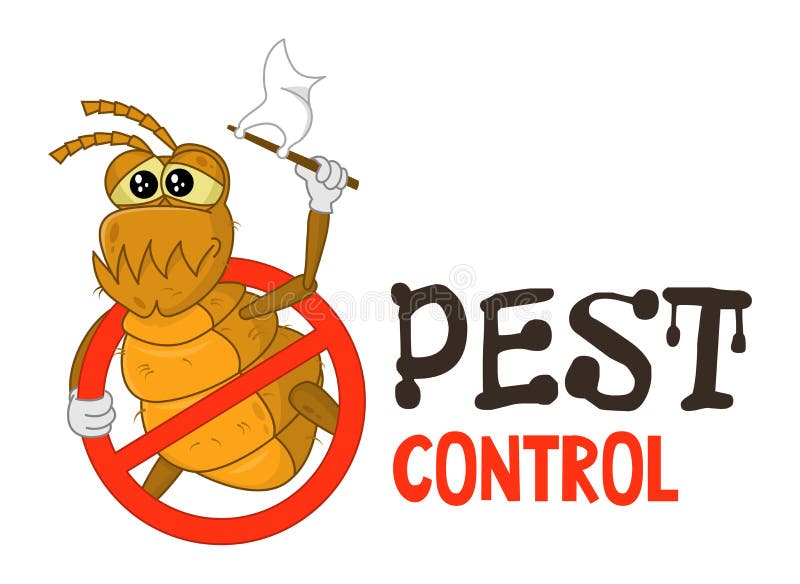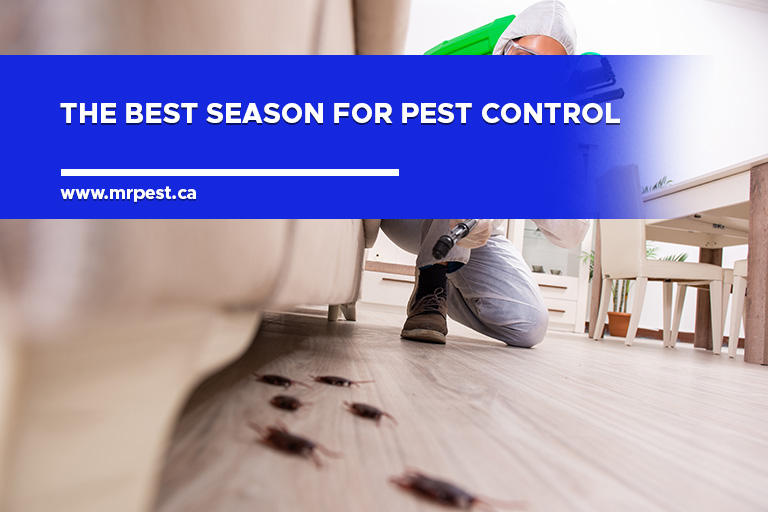Safe and Reliable Parasite Control for Lasting Protection
Reliable bug administration requires a diverse approach that balances environmental honesty with the demand for reliable bug reductions. The nuances of these methods may not be promptly clear, prompting a closer exam of the practices that can lead to lasting bug control end results.
Recognizing Bug Control Methods
Bug control includes a variety of methods focused on managing and eliminating unwanted insects and rats that can endanger both health and residential or commercial property. Understanding these approaches is critical for efficient insect monitoring.
The main classifications of insect control methods consist of mechanical, organic, and chemical strategies. Mechanical approaches involve physical barriers and traps to avoid insect entry and capture undesirable types. For example, making use of screens on home windows or utilizing sticky traps can dramatically reduce bug populaces without introducing unsafe substances.

Chemical pest control is usually one of the most acknowledged method, making use of pesticides to get rid of pests. These chemicals can be efficient however need to be used with caution to avoid negative results on non-target types and the environment.
Benefits of Eco-Friendly Solutions
Just how can green remedies change pest control practices? The fostering of green parasite control techniques offers countless benefits, substantially boosting the efficiency and security of bug monitoring (exterminator coquitlam). First of all, these options utilize natural active ingredients, decreasing the dependence on dangerous chemicals that can posture dangers to human health and the atmosphere. This change not just protects family pets and families however likewise decreases the capacity for dirt and water contamination.

Another benefit is the positive influence on local biodiversity. Environmentally friendly services are made to target specific bugs while protecting advantageous insects and wildlife, advertising a balanced community. This technique aligns with the expanding consumer need for lasting methods, enhancing the track record of bug control suppliers.
Integrated Pest Monitoring Techniques
The implementation of green services naturally results in the adoption of Integrated Parasite Management (IPM) techniques, which better boost parasite control efficiency. IPM is an alternative strategy that combines several techniques to handle bug populaces while lessening environmental impact. This strategy stresses making use of organic, cultural, mechanical, and chemical controls, making certain a well balanced and lasting method of insect administration.
One essential aspect of IPM is the extensive evaluation of bug activity and ecological conditions. By checking pest populations and recognizing their life cycles, professionals can apply targeted interventions that interfere with the insect's environment or lifecycle, minimizing reliance on chemical pesticides. In addition, cultural techniques such as plant turning and environment adjustment can considerably reduce parasite establishment and reproduction.
One more important element is the use of biological control agents, such as beneficial pests or microbes, which can normally suppress pest populations. When chemical applications are necessary, IPM focuses on making use of low-risk pesticides and uses them selectively, decreasing exposure to non-target microorganisms and humans.
Including IPM techniques not ant pest control only enhances pest control performance however additionally advertises a much safer ecological community, lining up with the growing need for lasting practices in bug administration.
Safe Practices for House Owners
Comprehending the relevance of safe methods in bug control can equip homeowners to effectively handle insect issues while securing their health and the environment. Executing precautionary steps and non-toxic techniques is important in reducing direct exposure to harmful chemicals.
Homeowners need to initially evaluate their environment for conditions that draw in pests, such as standing food, clutter, and water waste. Routinely cleansing and sealing entry factors can hinder bugs from getting into the home. Making use of natural deterrents, such as essential oils or diatomaceous earth, can give efficient options to chemical pesticides.
When chemical treatments are essential, home owners must go with products that are specifically classified as secure for residential use. It is necessary to adhere to application guidelines thoroughly to avoid overexposure. Making use of targeted treatments in locations where parasites are recognized, rather than covering splashing, can dramatically minimize chemical use.
Finally, keeping open interaction with bug control professionals is crucial. Property owners must ask about the safety and security of products made use of and request green options whenever feasible. By adopting these risk-free methods, homeowners can develop a healthier living atmosphere while properly handling parasite issues.

Tips for Long-Term Protection
Developing a pest management method that stresses lasting security can significantly boost the performance of the risk-free practices formerly gone over. To achieve this, homeowners should execute normal inspections of their residential property, focusing on hidden areas such as attics, cellars, and crawl rooms. Early discovery of insect activity is crucial in stopping invasions from taking hold.
These techniques minimize attractants that attract bugs into the home. Sealing access factors, such as fractures around doors and windows, can successfully obstruct potential bug access.
Landscape design needs to additionally be taken into consideration; maintaining plants cut and preserving a range in between vegetation and Your Domain Name the home decreases hiding areas for insects. Making use of all-natural deterrents, such as necessary oils or diatomaceous planet, can better inhibit infestations without turning to rough chemicals.
Finally, collaborating with a professional bug control service for routine assessments can provide an extra layer of safety and security. These professionals can use customized recommendations and advanced therapies, ensuring that your home remains shielded versus insects in the long term.
Final Thought
In verdict, safe and reliable insect control calls for a diverse strategy that stresses environmentally friendly techniques and integrated pest management. By implementing natural deterrents, performing regular examinations, and keeping correct cleanliness, homeowner can substantially minimize insect populations while shielding useful bugs and the setting. Partnership with specialist insect control solutions boosts the effectiveness of these approaches, making certain tailored services that supply long lasting protection and comfort versus future invasions.
Reliable bug monitoring needs a diverse strategy that stabilizes eco-friendly integrity with the requirement for reliable parasite suppression. The adoption of eco-friendly parasite control approaches provides countless benefits, Visit Website substantially improving the efficiency and safety of pest management.The implementation of green solutions naturally leads to the fostering of Integrated Pest Management (IPM) approaches, which even more improve pest control efficiency. exterminator coquitlam. By keeping an eye on bug populaces and recognizing their life cycles, specialists can implement targeted interventions that disrupt the pest's environment or lifecycle, reducing reliance on chemical pesticides.In final thought, risk-free and trustworthy insect control calls for a diverse approach that emphasizes environment-friendly methods and integrated parasite management